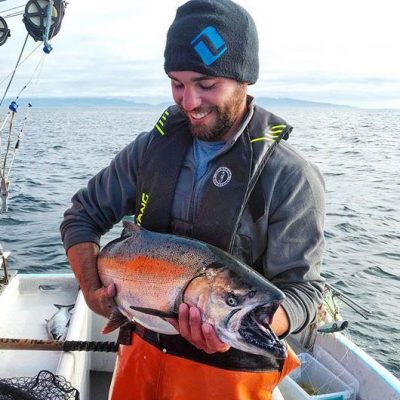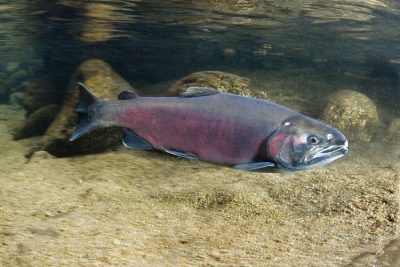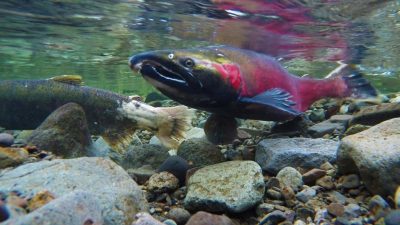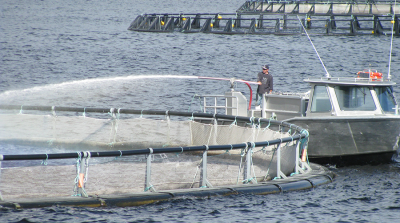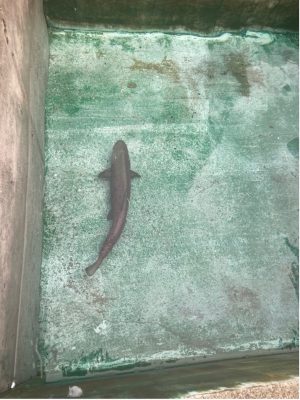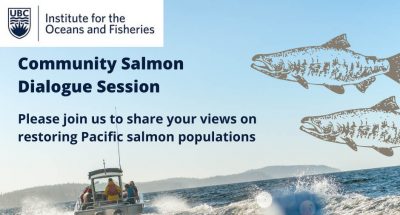When the ocean changes the rules for Wild Salmon
One of the threats salmon face has a deceptively gentle name: thiamine deficiency complex.
Fish farm pathogen risks not properly addressed in federal government’s framework: Study
It identifies key flaws that led DFO to conclude that T. maritimum is unlikely to cause disease in wild fish, and that PRV is not an infectious disease agent – despite credible scientific evidence to the contrary.
Bridging the gaps to save British Columbia’s salmon
Indigenous stewardship needs to be recognized and supported, giving First Nations and local communities clear decision making authority.
Pacific salmon are highly sensitive to ocean acidification – regardless of how much they eat
Climate change is driven in part by excess carbon dioxide emissions, much of which is absorbed by the ocean, a process known as ocean acidification.
IOF researchers receive federal research funding
Congratulations to Drs. Brian Hunt, Murdoch McAllister, Evgeny Pakhomov, and Camilla Speller who received funding.
The future of Pacific salmon: Community dialogues underscore the urgent need for collaborative restoration
Thirteen public meetings to gather knowledge from local and Indigenous communities in support of salmon rebuilding and recovery in the Pacific Northwest.
Global North’s growing appetite for farmed salmon imperils communities’ access to local fish
The growing appetite for expensive farmed salmon can leave coastal communities struggling to access affordable local fish like sardines and anchovies
UBC researchers investigate thiamine (vitamin B1) deficiency in BC Chinook salmon for the first time
Since the 1990’s, TDC has been associated with fish and seabird declines in the Great Lakes and the Baltic Sea. In addition to direct mortality, TDC includes sublethal effects across all salmon life stages, including reduced visual acuity and feeding rates, reduced migration performance, and impaired immune response.
Gideon Mordecai is named as an Action Canada Fellow
Action Canada selects emerging leaders from across Canada to become Fellows. They represent all sectors, including business, NGOs, science, government and academia. What they share in common is a commitment to Canada and a demonstrated engagement with public policy.
Salmon Dialogues: JOIN US!
Have ideas on how to rebuild and restore Pacific salmon populations? IOF will host 14 Community Salmon Dialogues across BC seeking input from all community members about the future of Pacific salmon. Join us at one of these events.
